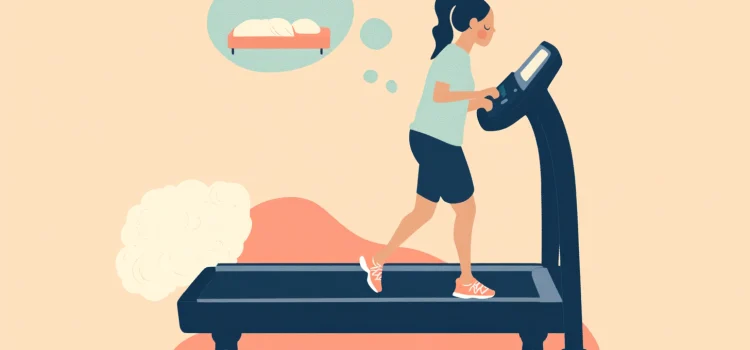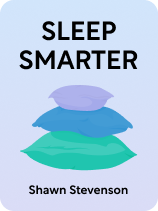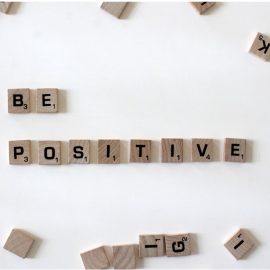

This article is an excerpt from the Shortform book guide to "Sleep Smarter" by Shawn Stevenson. Shortform has the world's best summaries and analyses of books you should be reading.
Like this article? Sign up for a free trial here.
How is your lifestyle and sleep connected? What are the benefits of exercise for sleep?
Shawn Stevenson says that common lifestyle factors can change the quality of your sleep. Foods and beverages can help and hinder your ability to sleep, and there’s also a beneficial relationship between exercise and sleep.
Continue reading to learn more about the relationship between sleep and a healthy lifestyle.
Foods and Beverages That Impact Sleep
Stevenson discusses how your sleep and a healthy lifestyle impact your sleep patterns and quality, particularly when it comes to dietary choices. Certain foods and drinks can either help to promote a restful sleep or disrupt it.
Caffeine
Stevenson names caffeinated beverages as one of the main offenders causing sleep disruption. While consuming caffeine isn’t inherently bad, doing so too close to bedtime—typically, within six hours of it—can interfere with your ability to fall asleep. To fully understand why caffeine is so disruptive, we need to first consider a chemical called adenosine. Your brain naturally produces adenosine when you’re awake, and your nervous system regularly measures the amount of adenosine in your body to determine whether you’ve been awake for too long. The more adenosine your nervous system finds, the more tired it will make you feel.
Alcohol
Alcohol is another beverage to avoid before bedtime. Stevenson asserts that though alcohol may help you fall asleep faster, it hinders your ability to experience REM sleep. REM sleep is the stage in your nightly sleep cycle when you dream, and it’s a vital part of memory processing in your brain. Your brain needs REM sleep to prepare short-term memories for long-term storage. Without it, your memory and overall health will decline.
Nutrients That Improve Sleep
Stevenson writes that a healthy diet can improve your sleep. He recommends getting nutrients from your diet rather than from supplements because your body can more easily recognize nutrients from whole foods. When vitamins and minerals are isolated in supplement form, they’re harder for your body to absorb.
Three nutrients in particular that Stevenson advises you include in your diet are tryptophan, vitamin C, and Omega-3s:
Tryptophan is necessary for serotonin production. You can get it from foods such as turkey, eggs, and sweet potatoes.
Vitamin C is important for staying asleep through the night. People who are deficient in vitamin C tend to wake up more throughout the night and generally have more sleep problems. You can get vitamin C from foods such as citrus fruits and leafy green vegetables.
Omega-3s contribute to sleep that is deeper and more restful. You can get omega-3s from foods such as salmon, chia seeds, and flax seeds.
Herbal Supplements for Better Sleep
When you need a little extra help getting to sleep (and staying asleep), there are several herbal supplements that might help you. Stevenson states you shouldn’t rely solely on supplements for sleep improvement, but certain ones can support and enhance the quality of sleep when used alongside other healthy lifestyle adjustments.
Kava kava is a plant from Fiji that’s typically taken as a tea. It’s a natural sedative and helps stop fatigue and sleeplessness. Research suggests that it may reduce the amount of time needed to fall asleep and improve the quality of sleep.
Chamomile is a common herbal remedy with many uses, including as a mild sedative. Drinking a cup of chamomile tea at night can help you fall asleep by relaxing your nervous system and releasing muscle tension.
Valerian is a stronger sedative. It helps you to fall and stay asleep. Its medicinal benefits come from the root, and it can be taken in tea, tincture, or capsule form.
The Exercise-Sleep Connection
Stevenson writes that sleep plays a key role in determining how effective exercise is for your body. This is because it’s only when you sleep that the positive effects of exercise materialize: During a workout, you create thousands of small tears in your muscles, which don’t get repaired until you rest later, at which time your body produces hormones that repair these tiny tears. This repair process leaves your muscles stronger than they were before, leading to muscle growth—but it doesn’t happen unless you get enough sleep to allow for it.
Sleep and exercise are positively correlated in the opposite direction as well—just as sleep benefits exercise, exercise benefits sleep. Stevenson writes, though, that what time of day you exercise makes a big difference in how much it improves your sleep, arguing that working out in the morning produces the greatest positive effects. This is because morning exercise encourages your body’s natural release of cortisol that helps to wake you up every day, h. This helps normalize your 24-hour sleep cycle, and thus, people who exercise in the morning typically sleep deeper and longer.
Stevenson advises not to exercise shortly before going to bed. When you exercise, you significantly increase your core body temperature, so if you exercise too late in the day, your body temperature may still be too warm by the time you want to go to bed. Exercising also induces the release of stress hormones that keep you alert, so it’s important to give yourself enough time for them to leave your system before bed.
How Do You Keep a Morning Workout Routine?
While working out every morning may help you get a good night’s sleep, many people struggle to stick with their exercise routines. In The Power of Habit, Charles Duhigg offers some advice on how to make a habit stick. He argues that each habit requires three steps to become automatic:
1. The cue is an external trigger that tells you it’s time to exercise. If you’re working out in the morning, this could be your alarm clock going off.
2. The routine is the act that you would like to carry out, in this case, your actual workout routine.
3. The reward is the result of your routine that signals the end of the activity. If you find exercise intrinsically rewarding, you could just enjoy the feeling of accomplishment; otherwise, you could give yourself an external reward like a snack or an activity you enjoy.
Consistently adhering to this three-part cycle will make your morning workout routine easier to maintain, leading to improved sleep at night.

———End of Preview———
Like what you just read? Read the rest of the world's best book summary and analysis of Shawn Stevenson's "Sleep Smarter" at Shortform.
Here's what you'll find in our full Sleep Smarter summary:
- How sleep affects your body, mind, and overall quality of life
- Practical suggestions for achieving a good night’s sleep
- The unexpected benefits of eating sweet potatoes






